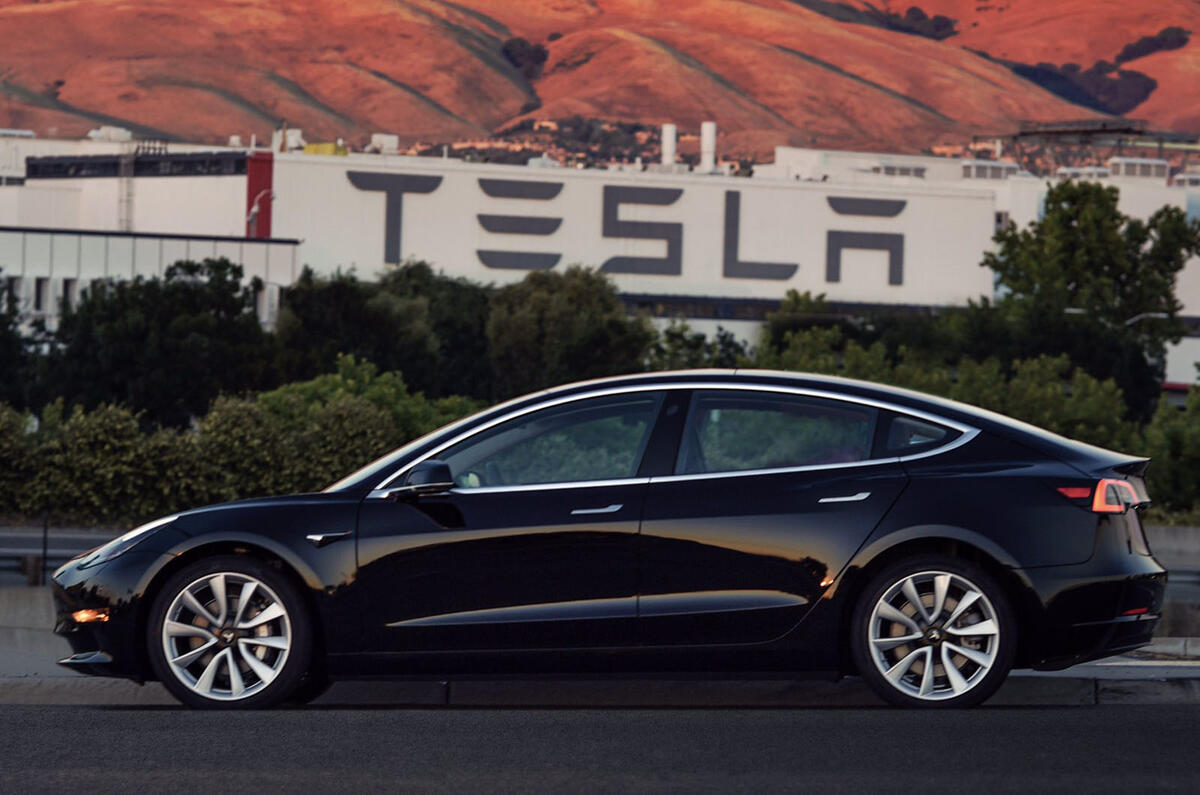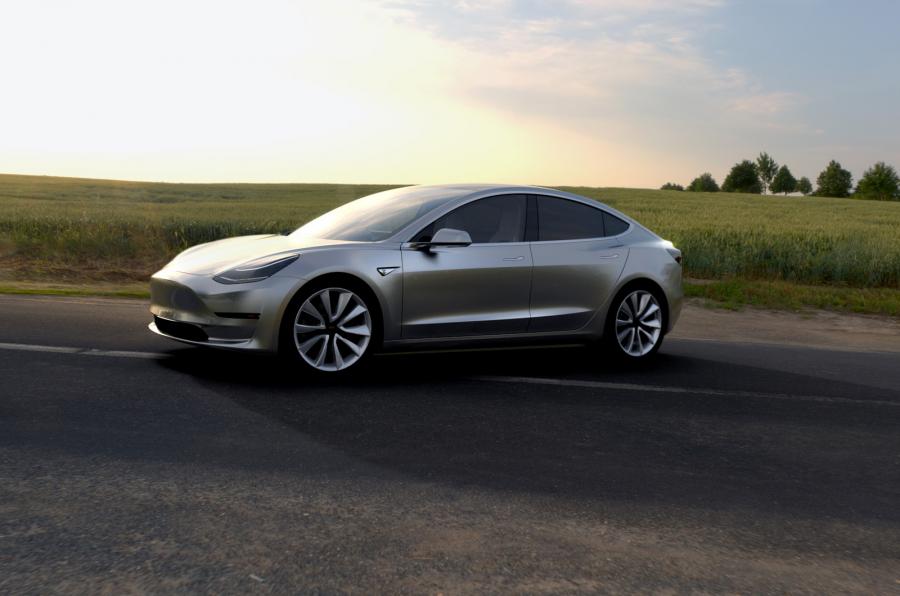The Tesla Model 3 can travel up to 310 miles on one charge according to official tests carried out by US regulator, the United States Environmental Protection Agency.
This figure, which applies to the Long Range variant, matches the number Tesla CEO Elon Musk claimed would be possible at the car's reveal in July. The car, on display at the LA motor show, is currently available with 50kWh or 75kWh batteries.
The standard car costs from $35,000 (£26,650) and has a claimed range of 220 miles, hits 0-60mph in 5.6sec and has a top speed of 130mph. The Long Range model achieves the headline range, costs from $44,000 (£33,500), can do 0-60mph in 5.1sec and has a 140mph top speed.
No details of UK pricing or delivery dates in 2019 have been revealed, but the entry-level price is expected to be just over £30,000 after the £4500 government grant for zero-emissions vehicles is applied. That will pitch it against the likes of the Audi A4, BMW 3 Series, Jaguar XE and Mercedes C-Class in terms of pricing and size.
A Performance variant is due in 2018, but Musk has previously stated that a more powerful 100kWh battery (which is the standard battery for Tesla Performance models) would not fit into the Model 3's smaller structure. This suggests Tesla may only slightly increase the battery size of the current range-topping 75kWh version of the Model 3.
He refrained from revealing more about the Model 3 Performance's potential, but the hot version is expected to stick to Tesla's usual range-topping formula of using a dual-motor, four-wheel drive powertrain. The Model 3 is more than 400kg lighter than the Model S, so it could be quicker than that.

The Model 3 Performance is due to be launched in the middle of next year, as long as the brand can cater for the high level of demand it has so far experienced for the new electric BMW 3 Series rival.
In a tweet earlier this year, Musk said the "focus now is on getting out of Model 3 production hell". But he explained that adding more versions now would push the brand "deeper in hell" - suggesting it would delay the Performance's launch until output was comfortably meeting demand.
Model 3 owners will not get free access to the Tesla Supercharger high-speed charging system, with the company planning to charge for electricity as demand grows and it requires more investment to build up the network of chargers.
Musk handed over the first customer Model 3 to its owner at the car's launch event in summer, where he also pledged to meet the massive customer demand with an ambitious production schedule.
Tesla's Gigafactory in Nevada, US, is handling production of the 3. It fell short of expected output when a supply issue arose, with just 220 Model 3s delivered in the third quarter of 2017, far below the 1500 predicted by the brand.
Once the bottlenecks are sorted, the plan is for the Gigafactory to be able to produce 20,000 cars per month. However, production of right-hand-drive models won't begin until 2019. If Tesla hits its planned production of 500,000 cars a year from the factory, analysts predict that it will outsell BMW, Mercedes-Benz and Lexus in the US.

Prospective Tesla Model 3 owners tell us why they're buying one
Tesla recently launched its Semi lorry and the Roadster, following an injection of $1 billion (around £800 million) worth of investment into the company - something Musk has previously said would help the company meet high demand for the Model 3. To date, Tesla has had more than 500,000 pre-orders for the Model 3, with Musk saying that those cars should all be delivered before the end of 2018.
"If you order a car today, it should be with you at the end of 2018," he said, referring to production of left-hand-drive Model 3s.
Tesla has raised capital to help production and ease the financial risk associated with the production run. This has led to a rise in its share price and has been further boosted by reports of its future model plans, including the Model Y compact SUV, according to New York financiers.
However, some analysts still question Tesla's ability to ramp up from producing around 80,000 cars in the past year to 250,000 in the next 12 months. The brand posted a loss of £468 million in the last financial quarter - although this was linked to heavy investment and the production issue.
Read our Tesla Model X road test
Read more - Tesla's Gigafactory in numbers